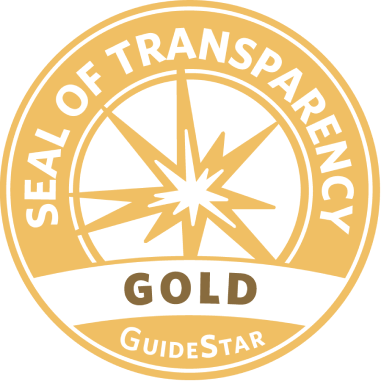In conflict zones, women often bear the brunt of war’s devastating consequences, facing displacement, loss of income, and limited access to education. Despite these challenges, many women are finding ways to rebuild their lives, often relying on skills that provide access to global opportunities. Among these skills, English proficiency stands out as a transformative tool. For women in conflict zones, learning English opens doors to employment, independence, and resilience, enabling them to create a better future for themselves and their families.
At the Omid Foundation, we are committed to equipping women with the resources they need to thrive, even in the most challenging circumstances. This article explores how English can be a game-changer for women in conflict zones, highlighting its role in creating employment opportunities and fostering empowerment.
The Reality for Women in Conflict Zones
Conflict zones are characterized by instability, economic collapse, and limited access to basic resources. Women in these areas face unique challenges, including:
- Economic Marginalization
Many women are left to support their families after losing their partners or male family members to war. However, local economies are often decimated, leaving few options for sustainable income.
- Barriers to Education
Schools and educational institutions are frequently destroyed or repurposed during conflicts, depriving women and girls of learning opportunities.
- Cultural and Social Restrictions
In some conflict zones, traditional gender roles restrict women’s participation in the workforce, further limiting their economic independence.
Despite these challenges, women possess resilience and resourcefulness that can be harnessed with the right tools—such as English proficiency.
Why English Matters for Employment
English is often referred to as the global language of business. Its role in providing employment opportunities is particularly significant for women in conflict zones, where local economies may be unable to provide stable jobs. English can open doors in the following ways:
- Access to Global Job Markets
The rise of remote work has made it possible for individuals to earn an income from anywhere in the world. Women who learn English can access freelance platforms and remote job opportunities, offering services such as writing, translation, or virtual assistance.
- Opportunities in NGOs and International Organizations
Many non-governmental organizations (NGOs) and humanitarian agencies operate in conflict zones, requiring staff who can communicate in English. Women with English skills can secure positions in these organizations, contributing to their communities while earning a stable income.
- Tourism and Hospitality
In areas where conflict has subsided, rebuilding efforts often include a focus on tourism. English-speaking women can find work as tour guides, in hotels, or as cultural liaisons, helping to showcase their heritage to the world.
- Entrepreneurship
English allows women to tap into international markets, whether by selling handmade goods online, marketing local products, or offering services like online tutoring.
By providing access to these opportunities, English serves as a lifeline for women seeking to rebuild their lives in the aftermath of conflict.
Barriers to Learning English in Conflict Zones
While the benefits of learning English are clear, women in conflict zones face significant obstacles:
- Lack of Infrastructure
Conflict often destroys schools, libraries, and internet access points, making it difficult for women to access English learning materials.
- Economic Constraints
Many families prioritize immediate survival needs over education, leaving women without the resources to enroll in language classes.
- Security Concerns
Ongoing violence and instability make it dangerous for women to attend in-person classes or access public spaces where learning resources may be available.
- Cultural Norms
In some communities, traditional gender roles discourage women from pursuing education, particularly in subjects perceived as non-essential, like foreign languages.
Organizations like the Omid play a crucial role in addressing these barriers by creating accessible, inclusive, and innovative English learning programs tailored to the needs of women in conflict zones.
The Role of Digital Learning
Digital technology has revolutionized education, offering innovative solutions to challenges faced by women in conflict zones. Online platforms and mobile applications make it possible for women to learn English in a flexible and cost-effective manner.
- Language Learning Apps
Apps like Duolingo, Babbel, and Memrise provide interactive lessons that women can access on their phones, even in areas with limited infrastructure.
- Free Online Courses
Platforms like Coursera and edX offer free or low-cost English courses, allowing women to learn at their own pace.
- Virtual Classrooms
Organizations can set up virtual classrooms where women can connect with teachers and peers, fostering a sense of community while learning English.
- Open Educational Resources
Free online materials such as videos, podcasts, and e-books make it easier for women to practice their language skills independently.
These digital tools bridge the gap for women who might otherwise be unable to access traditional language classes, empowering them to learn English despite the challenges of their environments.
Stories of Resilience and Success
The transformative power of English education is best illustrated through the stories of women who have overcome adversity to create new opportunities for themselves.
Amina’s Journey to Independence
Amina, a young woman from Afghanistan, lost her family’s primary breadwinner during the conflict. Through an English language program supported by the Omid Foundation, she learned the skills needed to work as a virtual assistant for an international company. Today, Amina not only supports her family financially but also mentors other women in her community to learn English and pursue their goals.
Zahra’s Entrepreneurial Success
Zahra, a displaced woman from Iran, discovered her passion for handicrafts while living in a refugee camp. After learning English through online resources, she began selling her creations on international e-commerce platforms. Her business now provides a stable income and employs other women in the camp.
These stories highlight the resilience of women in conflict zones and the transformative impact of English education on their lives.
How the Omid Supports Women
The Omid Foundation is dedicated to empowering women in conflict zones through education, including English language programs. Our approach includes:
- Culturally Sensitive Curriculums
We design programs that respect local traditions while emphasizing practical language skills, ensuring women feel comfortable and supported in their learning journey.
- Accessible Resources
By providing free or low-cost materials, as well as access to digital learning tools, we ensure that English education is available to even the most marginalized women.
- Community Support
We create networks of learners, mentors, and educators who can support one another, fostering a sense of belonging and shared purpose.
- Focus on Employability
Our programs emphasize practical skills that women can use to secure employment, such as writing resumes, conducting interviews, and communicating professionally.
Through these efforts, we aim to help women harness the power of English to transform their lives and contribute to the rebuilding of their communities.
Conclusion
For women in conflict zones, learning English is more than a skill—it is a lifeline to hope, resilience, and opportunity. By opening doors to employment, education, and global connection, English empowers women to overcome adversity and build a brighter future.
At the Omid, we are committed to supporting these women every step of the way. By providing accessible and inclusive English education programs, we help women unlock their potential, achieve independence, and inspire others in their communities.
Together, we can create a world where no woman is left behind, even in the most challenging circumstances. Through the power of English, women can rebuild their lives, support their families, and contribute to a more just and equitable world.

